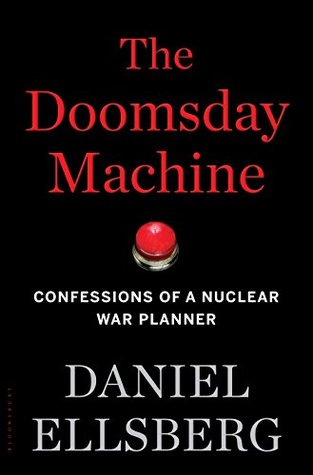More on this book
Community
Kindle Notes & Highlights
Read between
March 11 - April 22, 2020
Though officially denied, preemptive “launch on warning” (LOW)—either on tactical warning of an incoming attack or strategic warning that nuclear escalation is probably impending—has always been at the heart of our strategic alert.
They have used them in the precise way that a gun is used when it is pointed at someone in a confrontation, whether or not the trigger is pulled. To get one’s way without pulling the trigger is a major purpose for owning the gun.
It is the smoke, after all (not the fallout, which would remain mostly limited to the northern hemisphere), that would do it worldwide: smoke and soot lofted by fierce firestorms in hundreds of burning cities into the stratosphere, where it would not rain out and would remain for a decade or more, enveloping the globe and blocking most sunlight, lowering annual global temperatures to the level of the last Ice Age, and killing all harvests worldwide, causing near-universal starvation within a year or two.
Damage to itself, and to everyone else, from its own first strike would be total, unlimited.
The arsenals and plans of the two superpowers represent not only an insuperable obstacle to an effective global anti-proliferation campaign; they are in themselves a clear and present existential danger to the human species, and most others.
The idea was that the development of technology regularly moved much further and faster than other aspects of culture: our institutions of government, values, habits, ethics, and understanding of society and ourselves. Indeed, the very notion of progress referred mainly to technology. What lagged behind, what developed more slowly or not at all, was everything that bore on our ability to direct technology and to control it wisely, ethically, prudently.
Whether rightly or wrongly, we are the only country in the world that believes it won a war by bombing—specifically by bombing cities with weapons of mass destruction, firebombs, and atomic bombs—and believes that it was fully justified in doing so.
“There was a crowd there and then Fermi and I stayed there alone. I shook hands with Fermi and I said I thought this day would go down as a black day in the history of mankind.”
An article on the new “military intellectuals”40 likened RAND consultants in Washington and the Pentagon, moving invisibly across bureaucratic boundaries opaque to others, to the Jesuits of old Europe, moving between courts, serving as confessors to kings.
We can state, unequivocally, that they will be equivocal.… The ambiguity of strategic warning complicates the problem of decision.


